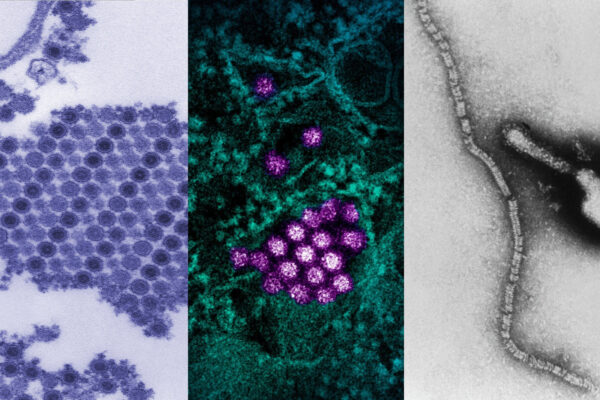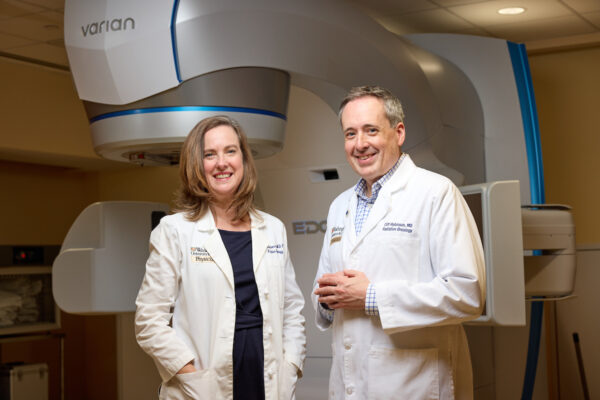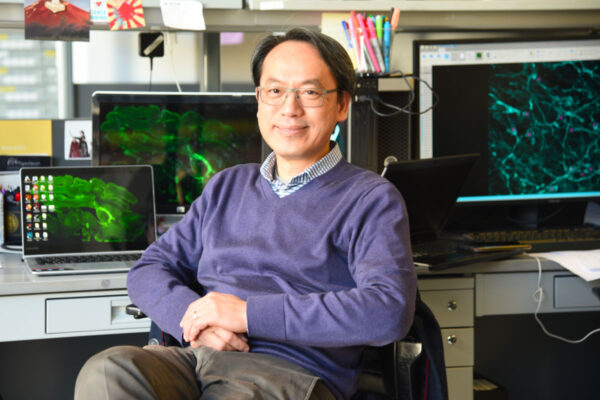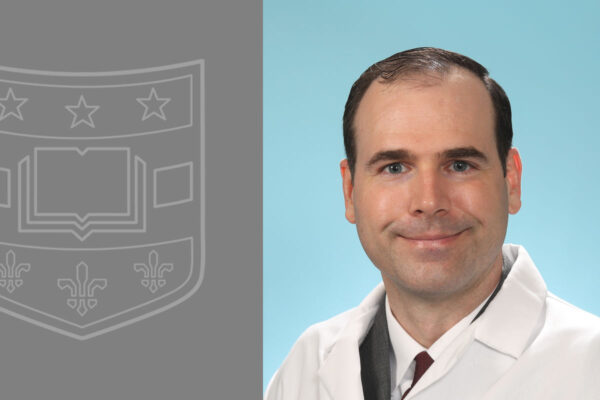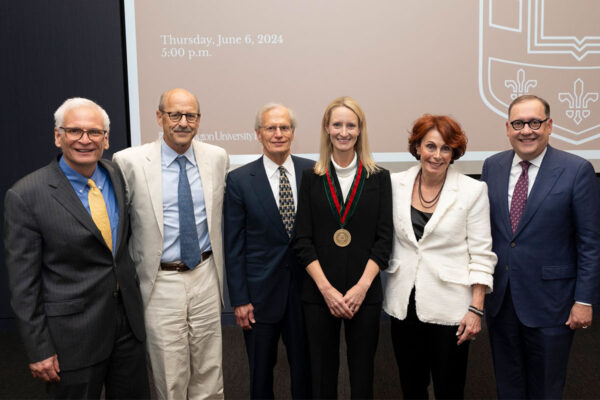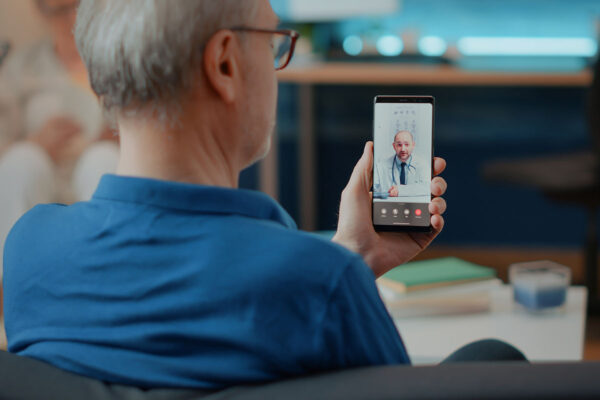Equity in public health: a focus on technology, workforce development
Sandro Galea, dean designate for Washington University in St. Louis’ planned School of Public Health, will provide a first look at his vision for the new school at the Public Health at WashU Annual Conference Oct. 21-22.
WashU Medicine leads two major pandemic preparedness research projects
Two grants totaling $30 million a year for three years support efforts to design vaccines and drugs for understudied virus families. WashU Medicine scientists are leading the efforts.
Two WashU faculty honored by biochemistry group
Two WashU faculty members, Benjamin Garcia and Rohit Pappu, have received annual awards from the American Society for Biochemistry and Molecular Biology.
Robinson, Schwarz recognized by radiation oncology society
Two professors of radiation oncology at Washington University School of Medicine in St. Louis — Clifford G. Robinson, MD, and Julie K. Schwarz, MD, PhD — have been named fellows of the American Society for Radiation Oncology.
Huang named head of pathology and immunology
Eric J. Huang, MD, PhD, a renowned physician-scientist specializing in neurodevelopmental and neurodegenerative diseases, has been named the Edward Mallinckrodt Professor and head of the Department of Pathology & Immunology at Washington University School of Medicine in St. Louis.
Galea named editor of JAMA Health Forum
Sandro Galea, MD, DrPH, dean designate of the planned School of Public Health at Washington University in St. Louis, has been named editor in chief of JAMA Health Forum, effective Jan. 1.
Walsh awarded career development award
James Walsh, MD, PhD, an assistant professor of ophthalmology and visual sciences at WashU Medicine, has received a four-year $350,000 career development award from Research to Prevent Blindness.
New home for world-class cancer care opens on Medical Campus
Siteman Cancer Center, based at Barnes-Jewish Hospital and Washington University School of Medicine in St. Louis, soon will open a newly constructed nine-story, 657,250-square-foot building on the Washington University Medical Campus. The state-of-the-art building will be dedicated exclusively to outpatient cancer care and will welcome its first patients Sept. 30.
Wall installed as Baker Professor
Lindley B. Wall, MD, has been installed as the Jacqueline N. Baker and W. Randolph Baker Professor at WashU Medicine. Wall is a national leader in hand and upper-extremity surgeries for pediatric patients.
Study offers strategies to ensure equitable access to digital health tools
As digital health tools gain popularity with advanced technology, Maura Kepper, a Brown School assistant professor, stresses the urgent need for equitable designs to reach marginalized populations.
Older Stories

